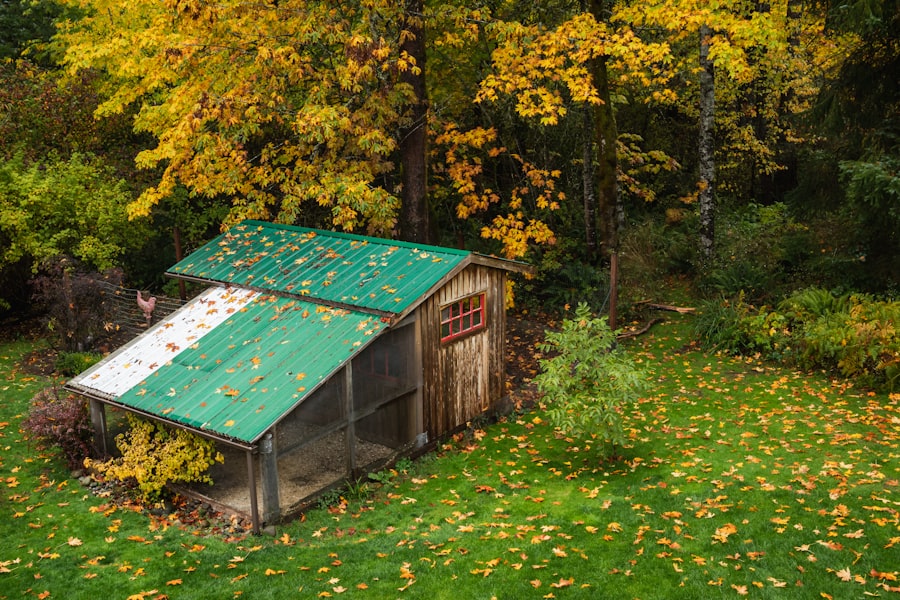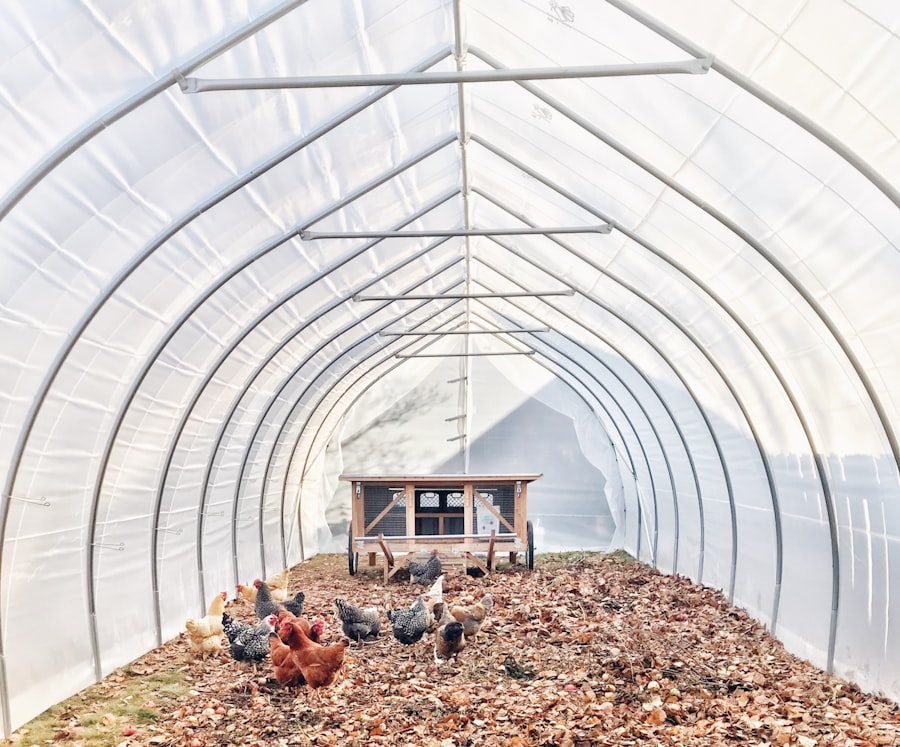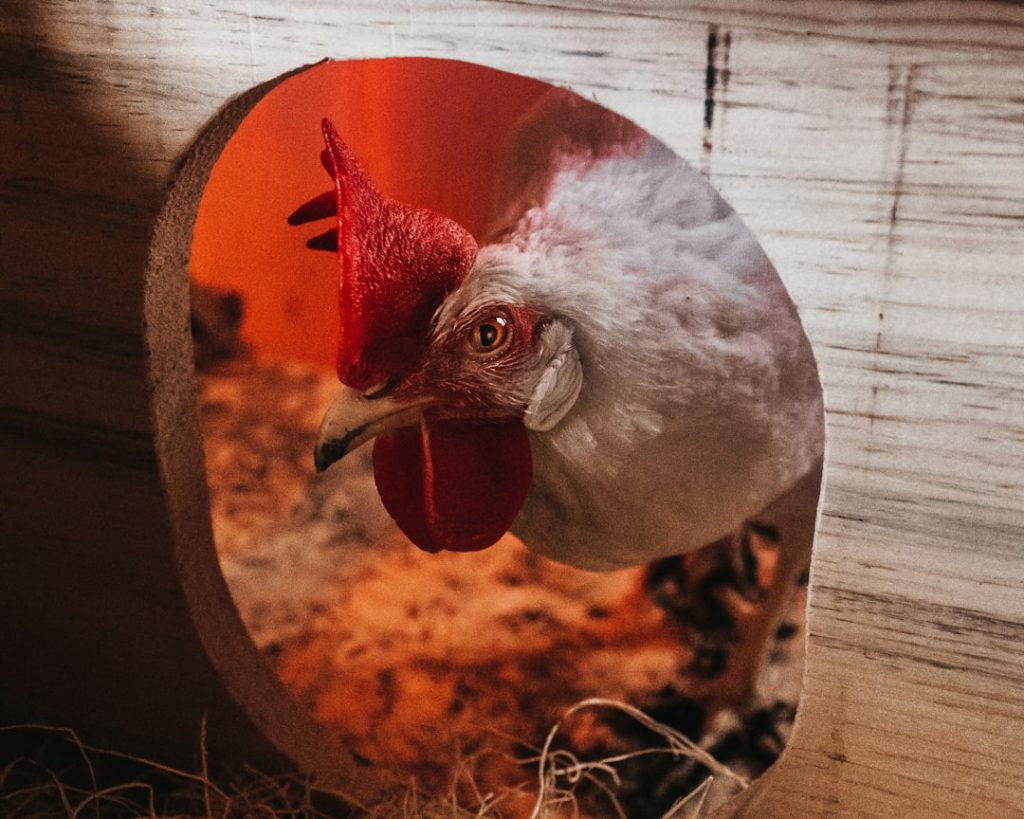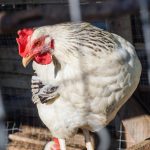When selecting breeds for a backyard chicken flock, several factors should be considered. Climate is a crucial consideration, as some breeds are better adapted to cold weather, while others thrive in warmer conditions. The intended purpose of the flock is also important, whether it’s for egg production or meat.
Certain breeds are known for their high egg-laying capacity, while others are valued for their meat quality. Temperament is another significant factor, especially for families with children or other pets. Docile and friendly breeds are often preferred in these situations.
Space availability is also crucial, as some breeds are better suited to confined areas, while others require more room to roam. After considering these factors, potential flock owners can research specific breeds that meet their requirements. Popular choices for backyard flocks include Rhode Island Reds, Plymouth Rocks, and Australorps, known for their hardiness, good egg production, and friendly dispositions.
For those interested in meat production, breeds like Cornish Cross or Freedom Ranger are often recommended due to their rapid growth and high-quality meat. The ideal breed for a backyard flock ultimately depends on the specific needs and preferences of the owner. Thorough research and careful consideration are essential to make an informed decision.
Table of Contents
Key Takeaways
- Consider the climate, space, and purpose of raising chickens when choosing the right breeds for your flock
- Ensure the chicken coop is predator-proof and provides adequate ventilation and space for the number of chickens you plan to raise
- Provide a balanced diet of commercial feed, fresh water, and occasional treats to meet the nutritional needs of your chickens
- Construct a sturdy and comfortable coop with nesting boxes that provide privacy and protection for egg-laying
- Regularly clean the coop, nesting boxes, and surrounding area to prevent the spread of disease and maintain a healthy environment for your chickens
- Monitor the health of your chickens by observing their behavior, appearance, and egg production, and seek veterinary care when necessary
- Manage free-range behavior by providing a secure outdoor space, monitoring for potential hazards, and training chickens to return to the coop at night
Creating a Safe and Secure Environment
Building a Sturdy Coop
Start by building a sturdy coop that provides protection from predators and the elements. The coop should be well-ventilated and insulated, with plenty of space for your chickens to roost and nest.
Securing the Coop from Predators
Make sure the coop is secure from predators like raccoons, foxes, and birds of prey. Use hardware cloth to cover windows and vents, and consider installing a predator-proof latch on the door.
Providing a Safe Outdoor Space
In addition to a secure coop, it’s important to provide a safe outdoor space for your chickens to roam. Consider fencing in a designated area for your flock, using chicken wire or hardware cloth to prevent predators from digging under the fence. Provide plenty of shade and shelter from the sun, as well as access to fresh water and nutritious forage. Finally, be mindful of potential hazards in your yard, such as toxic plants or chemicals.
Take the time to carefully inspect your chicken’s environment and make any necessary adjustments to ensure their safety.
Providing Proper Nutrition

Proper nutrition is essential for the health and well-being of your backyard chickens. Start by providing a balanced feed that is specifically formulated for laying hens or meat birds, depending on the purpose of your flock. Look for a feed that contains essential nutrients like protein, vitamins, and minerals, as well as calcium for strong eggshells.
Additionally, consider supplementing your chicken’s diet with treats like fruits, vegetables, and mealworms. These treats can provide additional nutrients and help prevent boredom in your flock. In addition to a balanced feed, make sure your chickens have access to fresh water at all times.
Consider using a waterer that is designed to prevent spills and contamination, and clean and refill it regularly to ensure it stays clean and free of debris. Finally, provide access to grit and oyster shells, which can help your chickens digest their food and maintain strong bones and eggshells. By providing a well-rounded diet that meets all of your chicken’s nutritional needs, you can help ensure they stay healthy and productive.
Building a Coop and Nesting Boxes
Building a coop and nesting boxes is an essential part of raising backyard chickens. Start by choosing a location for your coop that is well-drained and provides plenty of sunlight. The coop should be large enough to comfortably house your flock, with at least 2-3 square feet of space per chicken.
Additionally, make sure the coop is well-ventilated and insulated to provide protection from the elements. When it comes to nesting boxes, provide one box for every 3-4 hens, with each box measuring around 12×12 inches. Line the boxes with clean bedding material like straw or wood shavings to provide a comfortable and inviting space for your hens to lay their eggs.
Additionally, consider installing a slanted roof on the nesting boxes to prevent chickens from roosting on top of them. Finally, consider adding perches inside the coop to give your chickens a place to roost at night. Provide at least 8 inches of perch space per chicken, with perches positioned at different heights to accommodate all members of your flock.
By taking the time to build a well-designed coop and nesting boxes, you can provide a comfortable and secure environment for your backyard chickens.
Implementing a Regular Cleaning Routine
Implementing a regular cleaning routine is essential for maintaining a healthy environment for your backyard chickens. Start by cleaning out the coop and nesting boxes at least once a week, removing soiled bedding and replacing it with fresh material. Additionally, thoroughly clean and disinfect the coop several times a year to prevent the buildup of bacteria and parasites.
In addition to regular coop cleanings, make sure to keep your chicken’s food and water containers clean and free of debris. Clean waterers at least once a week, removing any algae or sediment that may have accumulated inside. Additionally, regularly inspect your chicken’s outdoor area for any potential hazards or sources of contamination.
By implementing a regular cleaning routine, you can help prevent the spread of disease and parasites in your flock, as well as create a more pleasant environment for both you and your chickens.
Monitoring Health and Wellness

Daily Observation
Start by observing your flock on a daily basis, looking for any signs of illness or injury. Common signs of illness in chickens include lethargy, decreased appetite, abnormal droppings, or changes in behavior.
Regular Handling and Inspection
Additionally, take the time to handle each chicken regularly to check for any physical abnormalities or signs of injury. Look for lice or mites in their feathers or on their skin, as well as any signs of respiratory distress or other health issues.
Establishing a Relationship with a Veterinarian
Consider establishing a relationship with a veterinarian who specializes in poultry care. A knowledgeable vet can provide valuable guidance on preventative care and treatment options for common chicken ailments. By staying vigilant and proactive about monitoring your chicken’s health and wellness, you can help ensure they stay happy and healthy for years to come.
Managing Free Range Behavior
If you plan on allowing your backyard chickens to free-range in your yard, it’s important to manage their behavior to ensure their safety and minimize any potential negative impacts on your property. Start by providing plenty of shade and shelter in their outdoor area to protect them from predators and extreme weather conditions. Additionally, consider using fencing or netting to create designated areas for your chickens to roam while still protecting sensitive areas of your yard like gardens or landscaping.
Finally, consider implementing rotational grazing practices to prevent overgrazing in any one area of your yard. By moving your chickens to different areas on a regular basis, you can help prevent soil erosion and promote healthy grass growth. By managing your chicken’s free-range behavior in a thoughtful and proactive manner, you can help ensure they have plenty of space to roam while still protecting your property and maintaining a harmonious relationship with your neighbors.
In conclusion, raising backyard chickens can be a rewarding experience that provides fresh eggs, meat, and entertainment for you and your family. By carefully considering factors like breed selection, environmental safety, nutrition, coop design, cleaning routines, health monitoring, and free-range management, you can create a healthy and sustainable environment for your flock to thrive. With proper care and attention to detail, you can enjoy the many benefits of raising backyard chickens while providing them with a happy and fulfilling life.
If you’re interested in learning more about keeping free range chickens in your yard, you might also want to check out this article on renting a chicken coop. It provides valuable information on how to provide a safe and comfortable living space for your chickens, which is essential for their well-being and productivity.
FAQs
What are free range chickens?
Free range chickens are poultry that are allowed to roam freely and forage for food in a natural environment, as opposed to being confined to a coop or small enclosure.
How much space do free range chickens need?
Free range chickens need at least 10 square feet of space per bird to roam and forage comfortably. However, the more space they have, the better.
What do free range chickens eat?
Free range chickens eat a variety of foods, including insects, grass, seeds, and kitchen scraps. It’s important to provide them with a balanced diet that includes commercial chicken feed as well.
How do you protect free range chickens from predators?
To protect free range chickens from predators, it’s important to secure the perimeter of the yard with fencing and to provide a secure coop for them to roost in at night. Additionally, using motion-activated lights and predator deterrents can help keep predators at bay.
Do free range chickens need a coop?
While free range chickens spend most of their time foraging outside, they still need a secure coop to roost in at night and to lay their eggs. The coop should provide protection from predators and the elements.
How do you keep free range chickens healthy?
To keep free range chickens healthy, it’s important to provide them with a balanced diet, access to clean water, regular veterinary care, and a clean living environment. Additionally, allowing them to forage and roam freely helps keep them physically and mentally healthy.
Meet Walter, the feathered-friend fanatic of Florida! Nestled in the sunshine state, Walter struts through life with his feathered companions, clucking his way to happiness. With a coop that’s fancier than a five-star hotel, he’s the Don Juan of the chicken world. When he’s not teaching his hens to do the cha-cha, you’ll find him in a heated debate with his prized rooster, Sir Clucks-a-Lot. Walter’s poultry passion is no yolk; he’s the sunny-side-up guy you never knew you needed in your flock of friends!







